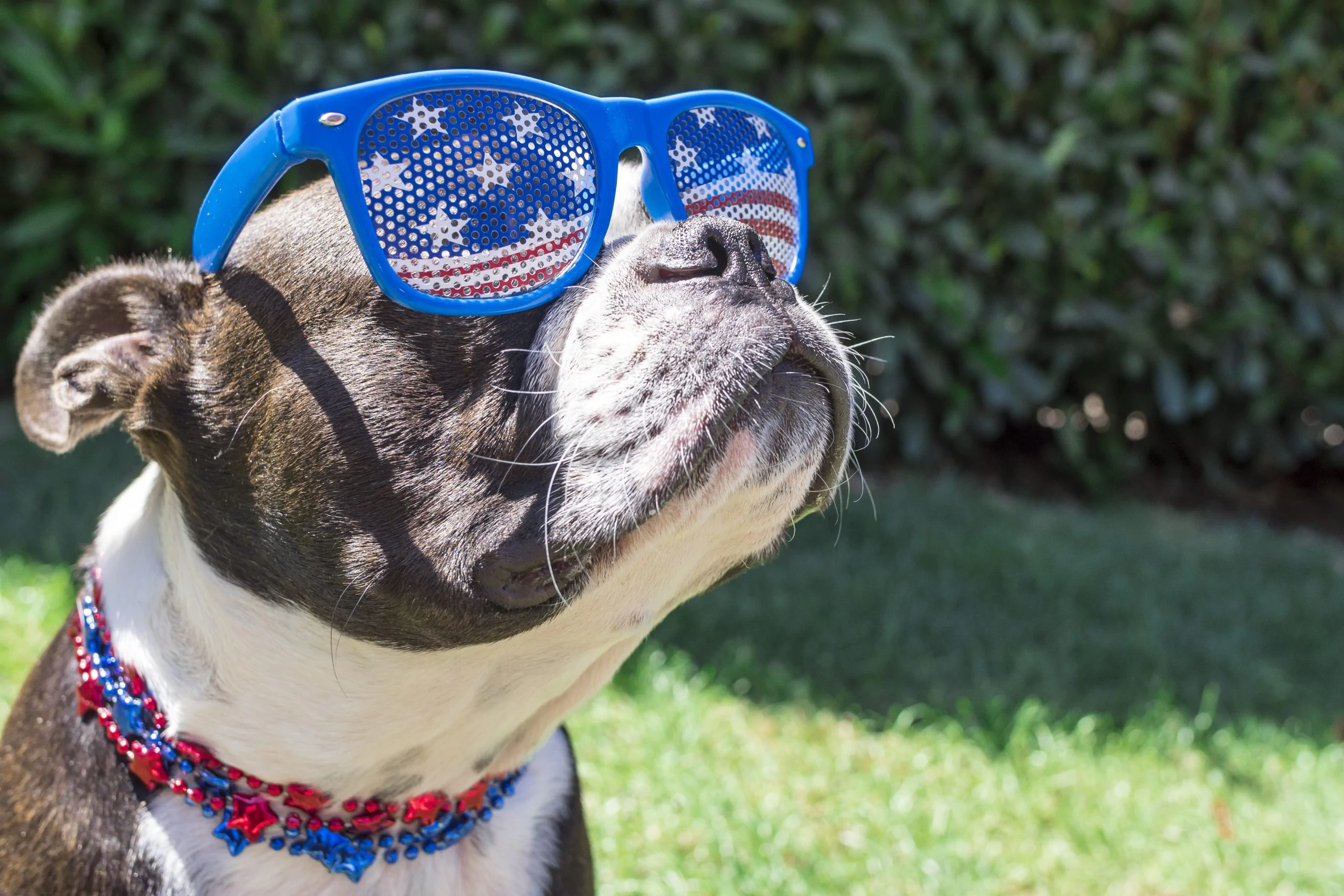There’s no better way to kick off the summer than with a Fourth of July celebration. Kids are on vacation, groups gather to barbecue or picnic at the beach, people play music at outdoor barbeques, and no one can wait to watch the fireworks. Unfortunately, the crowds and loud noises that we find thrilling are often sensed as threats to animals.
These Fourth of July festivities heighten the chance of an unexpected dog bite. Even the tamest dog can be provoked to aggression out of fear. Dog bites this time of year are common yet unpredictable, making it a good idea for everyone to have an understanding of how New York’s dog bite laws work.
New York Dog Bite Trends and Statistics
To better understand how or why dog bite incidents increase around the Fourth of July, first consider these underlying facts:
- NYC Department of Health reports an average of about 6,000 emergency department visits and about 300 hospitalizations each year due to dog bites
- Emergency department visits due to dog bites have increased since 2007
- The rate of dog-bite emergency visits is 1.5 times higher among children younger than 17 years old than adults
- Most injuries are caused by an owned pet (not a stray), and children are usually bitten by a dog that’s familiar to them
- The majority of dog bites occur while victims are passing by, entering, or leaving a dog’s area
- Most dog bites occur in the summer, between June and August
- In 2019, New York ranked 4th among states with the highest number of dog bite lawsuits (893 liability claims reported that year)
Why Dogs Don’t Like the Fourth of July
The main reasons the Fourth of July can be extra stressful for a dog are:
- Large Crowds: With groups of people gathering more than usual, there is an increased chance of a dog experiencing an unfamiliar encounter. Many families travel to new locations and kids spend more time outdoors, likely with less supervision than normal. Dogs are likely to be more territorial of their areas under these conditions.
- Fireworks: Dogs are highly sensitive to noise and vibrations, which can make a firework show an absolute nightmare. Each year, many dogs run away on July 4 to try and escape the noise, but the trauma can also cause dogs to become nervously aggressive. Both reactions increase the chance of a threatening encounter.
- Heat: Heat can be enough to agitate a dog on any normal summer day. Much like humans, dogs can get easily annoyed and irritable when subject to high temperatures. Studies have proven strong relationships between higher temperatures and increased emergency department visits for dog bites.
All three conditions undeniably make July 4th a day to be extra cautious around dogs. However, even the most cautious adult or child can be a victim of a dog attack.
Dog Bite Liability Laws in New York
New York requires a dog to be proven dangerous in order for its owner to be held liable for any injuries caused by an attack. A dog will not be classified as dangerous if it was justified in its attack. Dog attacks are justified if the dog was provoked. Examples of provocation are:
- Abuse towards the dog, or her puppies
- Attack on the dog’s owner
- The dog reacting to pain and suffering
In New York, a dog is considered dangerous when it, without justification:
- Attacks, injures or kills a human, farm animal, or domestic animal; or
- Behaves in a way that would lead a reasonable person to believe the dog poses a serious, unjustified threat of severe injury or death
New York is a mixed state, meaning its dog bite laws mix the one-bite rule with a degree of strict liability. The one bite rule requires a victim to prove the dog has a vicious propensity using the classifications above. This requires proof of previous aggressive tendencies and that the owner was aware of them.
Strict liability applies to the owner of a previously determined dangerous dog. This means that the owner is held strictly liable for any medical costs despite whether the bite could have been prevented. Dangerous dogs do not need to be proven dangerous again.
As in most personal injury cases, the burden of proof falls on the victim seeking a dog bite lawsuit settlement. If you’ve been victimized from a dog attack, it’s highly recommended you consult a dog bite attorney to help navigate New York’s relatively complicated laws.
Suing Someone for a Dog Bite
Dog bite settlements generally cover medical expenses and trauma/personal injury. It is possible to recover compensation such as lost wages and punitive damages, but these cases require a strong prosecution. Dog owners have a good chance at proving they are not liable, as the laws favor those who rarely have issues with their pets.
When is a Dog Owner Liable?
As previously stated, a dog owner can only be held liable if it’s proven that the dog had dangerous tendencies that the owner was aware of. The owner of an already determined dangerous dog is held strictly liable for all medical costs. Any non-medical damages would require specific proof that the owner was negligent.
Evidence of Vicious Propensity
In most circumstances, New York does not award settlements on the ground of negligence in dog bite lawsuits. Victims must be able to prove that a dog has an existing violent disposition in order to recover compensation. In New York, the only evidence of vicious propensity is a prior bite. You cannot use behavior such as barking or snarling, or BEWARE OF DOG signs to prove your claim.
Negligence and Criminal Charges
Negligence can be used to prosecute the owner of a dangerous dog who knowingly allowed the dog to bite a person, resulting in serious injury. In this case, the owner can be convicted of a misdemeanor, resulting in up to 90 days in jail and/or fines of up to $3,000.
Settlements and Potential Compensation
Depending on the seriousness of any injuries, victims may be able to recover compensation for:
- Medical bills for any hospitalization or treatments
- Lost wages or loss of future wages from inability to work
- Physical and emotional pain and suffering relating to your injury
- Psychological trauma, such as victims with an already-developed fear of dogs
Remember that these damages cannot be recovered unless the dog is proven to be dangerous. Only under certain circumstances may a victim be awarded damages beyond economic loss, such as if:
- The owner trained the dog to attack people
- The owner knew the dog was vicious and has bitten people and brought it near people anyway
Also note that your own conduct plays a role in recovering compensation. You cannot claim damages against a dog owner if you were trespassing on their property or provoking their animal before it bit you.
What to Do After a Dog Attack
The following three steps help victims and their legal teams through any dog bite litigation:
- Exchange insurance information with the dog owner at the scene
- Seek immediate medical attention and keep records of all treatments and billing statements
- Contact a dog bite lawyer to discuss your rights
New York’s Statute of Limitations for Dog Attacks
You have three years after the date of injury to take legal action for your dog bite injury. Do not hesitate to take legal action, as it will likely be a complex case in the mixed state of New York.
Don’t Let Dog Bites Ruin Your July 4th
The attorneys at Sobo & Sobo are waiting to hear your story and begin planning the legal representation you’ll need to win. With over 50 years of success handling dog attack lawsuits in New York City and across the Hudson Valley, our injury attorneys know what it takes to win the compensation that dog bite victims deserve. Contact us online today or call 855-468-7626 for a free consultation.




